U.S.–Singapore Free Trade Agreement (USSFTA)
Why It Matters for American Businesses and Investors
CORPORATE SECRETARIAL COMPLIANCE
Adept Finance
7/21/20254 min read
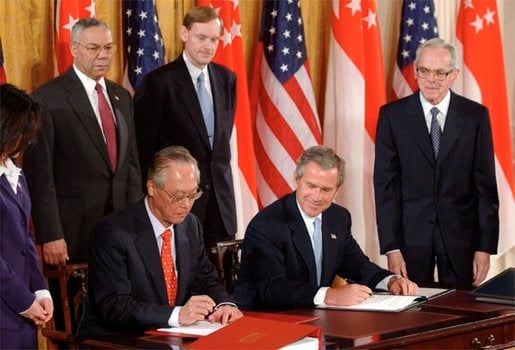

The U.S.–Singapore Free Trade Agreement (USSFTA)
The the U.S.-Singapore Free Trade Agreement (USSFTA), which came into effect more than 20 years ago, is a success the U.S. should expand on and take a look at some of the key benefits to American businesses, fund managers and investors.
Singapore and the United States have this high-standard trade and investment agreement signed in 2003 and in effective since 2004. This was the first U.S. FTA with an Asian nation, a landmark deal that has delivered substantial benefits for both countries.
This agreement delivers significant advantages to American businesses, investors, and citizens across multiple strategic areas.
This publication is provided for general information purposes only and is not intended to cover every aspect of the topics with which it deals. It does not constitute legal, tax, or accounting advice. Readers should not rely solely on this content for making decisions without consulting a qualified professional. Reading our articles does not create an attorney-client relationship between the reader and our firm.
While we strive for accuracy, laws and regulations change frequently, our articles may contain links to external websites or resources. We do not endorse or guarantee the accuracy of such content. We make no representations, warranties or guarantees, whether express or implied, that the content in the publication is accurate, complete or up to date. Use the information at your own risk.
Before taking any action based on our articles, consult a qualified attorney, tax advisor, or accountant pertaining to your unique situation. Always seek legal advice to ensure compliance with local regulations and ethical standards.
Key Benefits of the USSFTA for American Businesses and Investors:
1. Zero Tariffs on Most Goods
Besides binding all Singapore tariffs for U.S. goods at zero, the FTA has increased export opportunities for certain U.S. manufacturing sectors.
Key beneficiary sectors include:
▪ Electronics
▪ Pharmaceuticals
▪ Chemicals
▪ Machinery
▪ IT products
Many U.S. companies also use Singapore as a regional supply chain hub. As an example, a U.S. semiconductor manufacturer can ship products into Singapore duty-free, gaining a strategic edge over global competitors.


4. Simplified Business Travel & Work Authorization
As of 2025:
▪ Tourism/business visits: U.S. citizens can enter Singapore visa-free for up to 90 days. Extensions are available via Singapore’s Immigration & Checkpoints Authority (ICA).
▪ Work visas: Americans benefit from streamlined employment pass processing under Singapore’s Enhanced Immigration Automated Clearance System.
▪ No quotas for Americans: Unlike the U.S. H‑1B1 cap for Singaporeans, Singapore places no annual cap on U.S. work visas.


Why Should U.S. Companies Act Now?
The U.S.–Singapore Free Trade Agreement isn’t just a trade deal — it’s a strategic opportunity with benefits such as:
▪ Zero tariffs
▪ Full foreign ownership rights
▪ Strong IP protections
▪ Fast-track immigration for professionals
Singapore provides U.S. firms with a critical edge over regional competitors and the ability to gain access to one of the world’s most efficient, transparent, and business-friendly environments.
How We Help:
At Adept Corporate Services, we specialize in helping U.S. founders, fund managers, investors, and companies expand into Singapore and understand regulatory requirements in Singapore before expanding into the region.
Our team manages:
▪ Company formation and licensing of asset management companies
▪ Work visa applications
▪ Tax structuring and regulatory compliance
▪ Ongoing entity management
Let us help you make Singapore your trusted regional hub into Asia. Contact us today to start your expansion journey.
2. Greater Market Access for U.S. Services
The agreement opened Singapore’s banking, insurance, legal, telecom, and professional services sectors to American companies — including the right to establish 100% foreign-owned operations in many industries. Examples from the legal profession include Orrick, Baker Botts, Ropes & Gray, and Quinn Emanuel, all of which have used the FLP structure to expand into Singapore with limited local partner requirements.
3. Stronger Intellectual Property Protection
Singapore has committed to high standards of IP protection, including:
▪ Longer copyright terms
▪ Aggressive anti-piracy enforcement
▪ Protection of U.S. patents, trademarks, and trade secrets
This especially benefits U.S. firms in tech, pharma, and media by extending patent lifespans and reducing generic competition.
5. Open Access to Government Procurement
The USSFTA allows U.S. companies to bid on Singapore government contracts with equal treatment and transparent rules. For example, U.S. defense, IT, and infrastructure companies can now compete more easily for Singapore’s public sector tenders.
6. U.S. Trade Surplus with Singapore
Unlike many Asian economies, the U.S. maintains a positive trade balance with Singapore, driven by exports of:
▪ Boeing aircraft
▪ Medical technology
▪ Semiconductors
▪ Professional services
Use the Tariff Finder to see if your product is eligible to enjoy this FTA's tariff concessions.
American’s have the legal capacity to:
▪ Set up a Singaporean company in 1–2 business days
▪ Sponsor your own work visa
▪ Avoid local hiring requirements
Americans applying for roles on Singapore’s Shortage Occupation List (SOL) enjoy additional points toward visa approval and a U.S. citizen with a bachelor’s degree can receive work visa approval within 5–10 business days.
Professions on the SOL list include:
▪ Financial/investment advisers (especially family office–focused)
▪ Carbon market specialists
▪ Biotech and food innovation scientists
▪ AI engineers, cybersecurity professionals, and developers
▪ Marine, nursing, and radiology professionals


7. Preferential Treatment for Property Investment
U.S. citizens enjoy “National Treatment” when investing in Singapore real estate, which means they are exempt from the Additional Buyer’s Stamp Duty (ABSD) typically imposed on foreign buyers.
Eligibility for this exemption is limited to nationals of the United States, Switzerland, Liechtenstein, Norway, and Iceland.
8. Gateway to ASEAN and Asia-Pacific
Over 5,800 U.S. companies have chosen Singapore as their Asia-Pacific headquarters, thanks in large part to USSFTA benefits and trade facilitation mechanisms.
Singapore is a springboard into high-growth ASEAN markets, offering:
▪ Regulatory stability
▪ Efficient logistics
▪ Strong IP protection
▪ Multilateral trade connectivity


ADVISORY SERVICES
Compliance Outsourcing
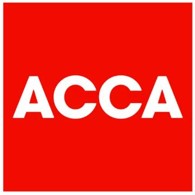

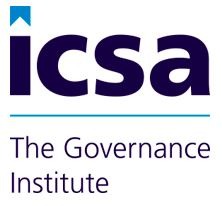

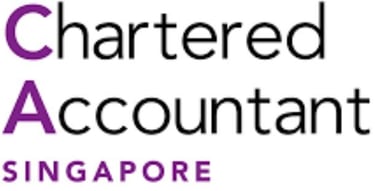
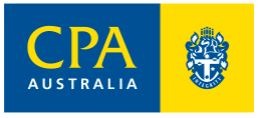

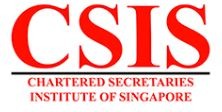


Adept Corporate Services (ACS) is a leading corporate service provider, offering comprehensive business solutions, including entity formation, corporate secretarial compliance, bank account opening (including offshore entities), corporate accounting, fund administration, tax compliance, MAS & SFC licensing & Compliance outsourcing, work visa applications, and payroll services.
Singapore| Malaysia | China | Hong Kong SAR | USA | British Virgin Islands | Cayman Islands
新加坡 | 马来西亚 | 中国 | 香港特别行政区 | 美国 | 维京群岛 | 开曼群岛


©2021-2026 Adept Corporate Services | All Rights Reserved


